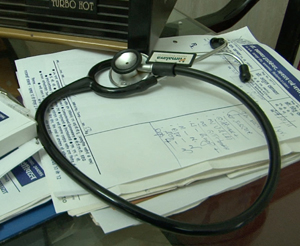
The fourth episode of Satyamev Jayate focused on the issue of medical malpractice, especially how doctors and hospitals abuse the trust patients and their families place in them when they are at their weakest. The response we received was deeply emotional, with many doctors saying they were upset at the manner in which they were portrayed.
A neurologist wrote in saying “over-investigation [...] was stated as malpractice. But when the results are normal, the perception is that the doctor advised unnecessary investigations. If the doctor does not recommend them, he or she is held responsible for not doing his work.”
On the charge of prescribing expensive drugs the doctor added, “Many low-cost drugs of a generic medicine are of low potency. Thus, most doctors prescribe costly medications made by good pharmas to ensure quality.” He goes on to say that “one should understand in what conditions a doctor works. These are not ideal and therefore, one cannot accuse a doctor if he does not behave ideally. Most of the doctors practise reasonably and serve the community”.
Another doctor, practising in rural India, wrote in describing the enormous stress that doctors work under in rural areas—the lack of proper facilities and adequate monetary compensation.
“I was beaten up after a child died of viral encephalitis. The parents had lied that the child had been vaccinated. A mob damaged the hospital and disturbed patients in the ICU. The local media called me a business-minded doctor, interested only in money. However, tests later proved the child had Japanese Encephalitis and the parents had not given him the vaccine.” And before signing off, he adds, “There should be introspection on both sides that of the patient and the doctor.”
Many practitioners also spoke about the frustrations they experienced while dealing with the health care system. Dr Mahendra Singh, a cancer biologist from the U.S.A., was helpless when his mother was diagnosed with cancer of the cervix. “The neurologist in India ordered that my mother be admitted immediately after she complained of lower back pain. The doctor said she had a severe infection and would develop gangrene if left untreated. They gave her a high dose of antibiotics, and she is still in coma.”
A paediatrician in the U.K. wrote about the callousness displayed by colleagues. The doctor wrote, “While working at a ‘renowned' hospital in Delhi, my senior asked me to send a bottle full of water instead of sputum (cough) for testing an illness like TB. Another time, I was forced to send a child home in the middle of the night because there were no beds available. Within ten minutes, the child returned very ill and died within just a few more minutes.”
The overwhelming sentiment was that while the episode highlighted the troubling ways of some doctors, the lacunae in our health care system also needed attention. As a doctor, who received his degree in medicine recently, wrote, “Your episode has revealed so much dirt in our profession. Clearly there is a lot to be done.”